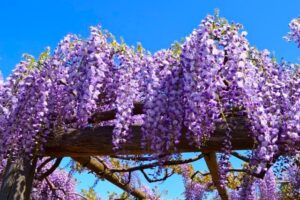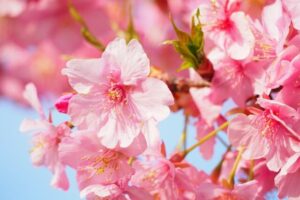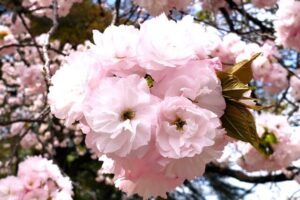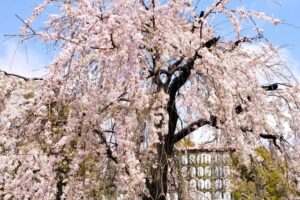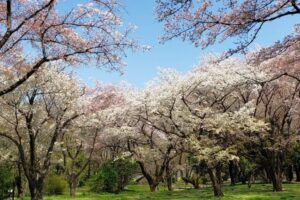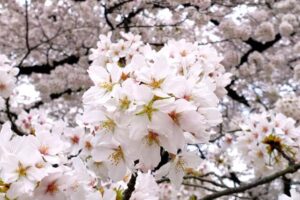外国人から「お盆って何ですか?」と聞かれたら、英語で答えられますでしょうか?
 woman
woman(「お盆」って何ですか?)
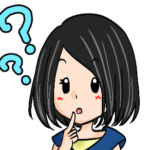


お盆って英語で何て説明すればいいのかしら?
外国人にお盆をどうやって説明すればいいのか?
そんな疑問にお答えします。
お盆は英語で「Bon Festival(盆の祭り)」です。
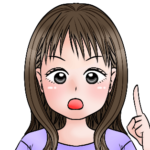


(お盆は夏季に行われる先祖の霊を祀る行事です。)
お盆について英語で説明する例文を一緒に見て行きましょう。
お盆を英語で説明
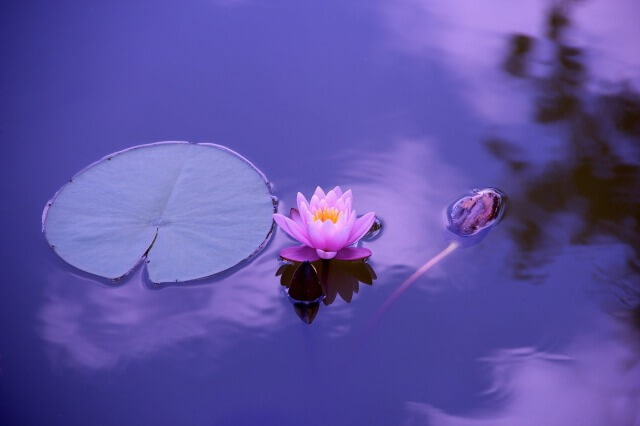

Obon is an event to worship the spirits of ancestors in the summer.
お盆は夏季に行われる先祖の霊を祀る行事です。
- Obon/お盆
- event/行事
- worship/祀る
- spirit/霊
- ancestor/先祖
- summer/夏季
It is believed that the spirits of our ancestors return from Pure Land to the earth during the Obon season.
先祖の霊はお盆の季節に、浄土から地上に戻ると信じられています。
- believe/信じる
- spirit/霊
- ancestor/先祖
- return/戻る
- Pure Land/浄土
- earth/地上
- during/の間
- Obon/お盆
- season/季節
Once a year, we welcome the spirits of our ancestors, spend time together, and hold a memorial service for the spirits of our ancestors.
年に一度、先祖の霊をお迎えし、一緒に時を過ごし、先祖の霊を供養します。
- once/一度
- year/年
- welcome/迎える
- spirit/霊
- ancestor/先祖
- spend/過ごす
- time/時
- together/一緒に
- hold a memorial service for/供養する



(先祖の霊をお迎えする行事なのね。)
お盆休みの期間を英語で説明
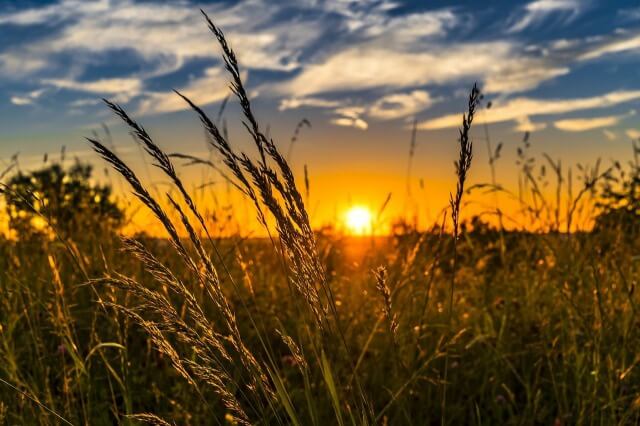

Obon was originally set on July 15th of the lunar calendar.
お盆は元々は旧暦の7月15日に設定されていました。
- Obon/お盆
- originally/元々は
- set/設定する
- July/7月
- 15th/15日
- lunar calendar/旧暦
However, due to the adoption of the new calendar, it has become a major obstacle to the farming season, and in many areas, August 15th is the Obon festival.
ところが、新暦の採用により、農繁期に大きな支障をきたすようになったため、多くの地域では8月15日をお盆とするようになりました。
- however/しかしながら
- due to/により
- adoption/採用
- new calendar/新暦
- become/なる
- major/主要な
- obstacle/障害
- farming season/農繁期
- many/多くの
- area/地域
- August/8月
- 15th/15日
- Obon festival/お盆
Obon is not a national holiday, but in Japan it is customary to take Obon holidays during this period.
お盆は国民の祝日ではありませんが、日本ではこの期間にお盆休みをとることが習慣となっています。
- Obon/お盆
- national holiday/国民の祝日
- Japan/日本
- customary/習慣
- take/取る
- Obon/お盆
- holiday/休み
- during/間
- period/期間
Obon holidays are usually from August 13th to 16th, depending on the region.
地域により異なりますが、お盆休みは通常8月13日〜16日となっています。
- Obon/お盆
- holiday/休み
- usually/通常
- August/8月
- 13th/13日
- 16th/16日
- depend on/による
- region/地域



(お盆の時期はお休みを取る人が多いのね。)
お盆のお供えを英語で説明


In Obon, it is customary to decorate horses made from cucumber and cows made from eggplant as offerings.
お盆では、キュウリで作った馬とナスで作った牛を、お供え物として飾る習慣があります。
- Obon/お盆
- customary/習慣がある
- decorate/飾る
- horse/馬
- made from/から作られた
- cucumber/キュウリ
- cow/牛
- eggplant/ナス
- as/として
- offering/お供え物
The horses and cows are said to be the vehicles used by ancestral spirits to travel between the earth and the Pure Land.
この馬と牛は、先祖の霊が地上と浄土を行き来するときに使う乗り物だと言われています。
- horse/馬
- cow/牛
- be said to/と言われている
- vehicle/乗り物
- use/使う
- ancestral/先祖の
- spirit/霊
- travel/行く
- between/の間
- earth/地上
- Pure Land/浄土
Cucumber horses mean “I want you to come as soon as possible.”
キュウリの馬には、「できるだけ早く来て欲しい」という意味があります。
- cucumber/キュウリ
- horse/馬
- mean/意味する
- come/来る
- as soon as possible/できるだけ早く
Eggplant cows mean “I want you to go home as slowly as possible.”
ナスの牛には「できるだけゆっくり帰ってほしい。」という意味があります。
- eggplant/ナス
- cow/牛
- mean/意味する
- go home/帰宅する
- as slowly as possible/できるだけゆっくり



(とても面白い習慣ですね。)
盆踊りを英語で説明


Bon Odori is a dance that dances during the Obon festival.
盆踊りは、お盆の時期におどる踊りです。
- Bon Odori/盆踊り
- dance/踊り、踊る
- during/の間
- Obon festival/お盆
Originally, Bon Odori was a Nembutsu dance to welcome the spirits of the dead, but with the passage of time, its original religious meaning has diminished.
元々盆踊りは、死者の霊を迎えるための念仏おどりでしたが、時間の経過とともに、本来の宗教的意味は薄れてきました。
- originally/元々
- Bon Odori/盆踊り
- Nembutsu/念仏
- dance/踊り
- welcome/迎える
- spirit/霊
- dead/死者
- passage/経過
- time/時間
- original/本来の
- religious/宗教的
- meaning/意味
- diminish/減らす
The way of dancing varies from region to region, but in Bon Odori, people generally dance in a circle around a tall wooden scaffolding specially made for a festival called Yagura.
踊り方は地域によって異なりますが、 一般的に盆踊りは、やぐらと呼ばれるお祭りのために特別に作られた高い木製の足場を中心に輪になっておどります。
- way/仕方
- dance/踊る
- vary/様々
- from region to region/地域ごとに
- Bon Odori/盆踊り
- people/人々
- generally/一般的に
- dance/踊る
- in a circle/輪になって
- around/周りに
- tall/高い
- wooden/木製の
- scaffolding/足場
- specially/特別に
- made/make(作る)の過去形・過去分詞
- for/のために
- festival/お祭り
- call/呼ぶ
- Yagura/やぐら



(死者の霊を迎え入れる踊りなのね。)
お盆のお墓参りを英語で説明


Many people visit the grave during the Obon festival.
お盆の時期には、多くの人がお墓参りをします。
- many/多くの
- people/人々
- visit/訪れる
- grave/墓
- during/間
- Obon festival/お盆
On August 13th, when the Obon festival begins, we will pick up the spirits of our ancestors at the grave.
お盆の始まる8月13日に、先祖の霊をお墓に迎えに行きます。
- August/8月
- 13th/13日
- Obon festival/お盆
- begin/始まる
- pick up/迎えに行く
- spirit/霊
- ancestor/先祖
- grave/墓
On August 16th, the end of the Obon festival, some people go to the grave to see off the spirits of their ancestors.
お盆の終わる8月16日に、先祖の霊をお見送りするためにお墓に行く人々もいます。
- August/8月
- 16th/16日
- end/終わり
- Obon festival/お盆
- some/いくらかの
- people/人々
- go/行く
- grave/墓
- see off/見送る
- spirit/霊
- ancestor/先祖
Some families believe that the spirits of their ancestors will return home directly and will not go to the grave but wait at home.
一部では、先祖の霊が直接家に帰ってくると信じ、墓には行かず家で待つ家族もいます。
- some/いくらか
- family/家族
- believe/信じる
- spirit/霊
- ancestor/先祖
- return/帰る
- home/家
- directly/直接
- go/行く
- grave/墓
- wait/待つ
- at home/自宅で



(ご先祖様をお墓まで迎えに行くのね。)
お盆を英語で説明|まとめ
いかがでしたでしょうか?
子供の頃から何気なく行っていた盆踊りにも、宗教的な意味合いがあるのですね。
いつの間にか、宗教的な意味合いが薄れ、休暇・お祭りになってしまっていますが、本来の意味を確認することで、日本の伝統を再確認することができます。
日本らしい習慣を、是非、英語で説明してみてください。









